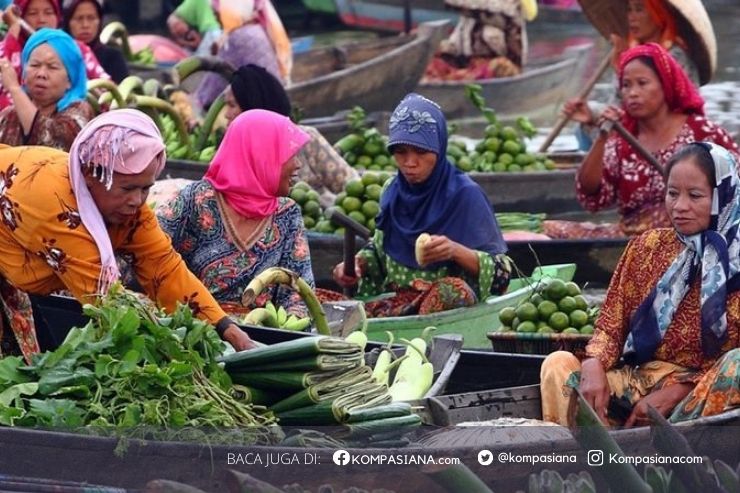Esther, a resilient 45-year-old fisherwoman from Ambon bay, Indonesia, has spent nearly two decades navigating the unpredictable waters of the fishing industry. Together with her husband, who also fishes, Esther has carved out a livelihood that depends on the daily rhythm of the sea and the markets. Every morning from 7:00 AM to 11:00 AM, except Sundays, Esther sets up her stall at Haria market, selling her husband's catches to the community. Her smartphone is her lifeline, allowing her to stay connected with market trends and determine the best prices for their fish. On Wednesdays and Saturdays, if prices at the Saparua market are more favorable, she travels there to sell, maximizing her earnings.
However, Esther's daily life is increasingly affected by the realities of climate change. The rising temperatures and changing weather patterns are making her already challenging work even more difficult. Extreme heat has become a significant obstacle, forcing her to adjust her market hours to avoid the hottest parts of the day, which in turn affects her profits. Additionally, unpredictable weather, such as strong winds, often keeps her husband from going out to fish, reducing their catch and income. On days when there is an abundance of fish in the market, prices plummet due to oversupply, further squeezing her earnings. Conversely, when fish are scarce, prices soar, but so does competition among traders, making it harder for Esther to secure enough stock to sell.
The lack of proper storage facilities exacerbates these challenges. Without a refrigerator, Esther has to sell all her fish quickly to avoid spoilage. On days when sales are slow, she takes her remaining fish door-to-door in a bid to avoid further losses. Her typical daily profit is IDR 100,000, which she carefully allocates to daily expenses, her savings group (rosca), and repaying her microloan (KUR) from BRI. This loan, which she has taken out three times, is vital for her family's needs, including her child's education in pediatric nursing.
Despite her careful planning, Esther is no stranger to financial setbacks. Losses can reach up to IDR 100,000, and when this happens, she employs a strategy to pay the fishermen only after selling the fish. This allows her to prioritize immediate household expenses while she seeks other means to pay her debts the following day. Esther also relies on her savings and occasional remittances from family members to weather these tough times.
The effects of climate change extend beyond Esther's personal struggles. The entire community of women fishers and traders faces similar challenges. The unavailability of fish due to severe weather or overfishing reduces their income, forcing many to take on debt to cover basic needs. Moreover, the phenomenon of "tanggal tua," the period at the end of the month when people's spending decreases, further complicates their ability to sell fish, as demand drops.
Women like Esther need resources to adapt to these new climate realities---whether through access to better storage facilities, financial literacy training to manage digital payments, or support in securing reliable local supplies. Without these resources, the financial difficulties exacerbated by climate change will continue to push women fishers and traders deeper into poverty, threatening not only their livelihoods but also their families and communities.
Follow Instagram @kompasianacom juga Tiktok @kompasiana biar nggak ketinggalan event seru komunitas dan tips dapat cuan dari Kompasiana
Baca juga cerita inspiratif langsung dari smartphone kamu dengan bergabung di WhatsApp Channel Kompasiana di SINI







